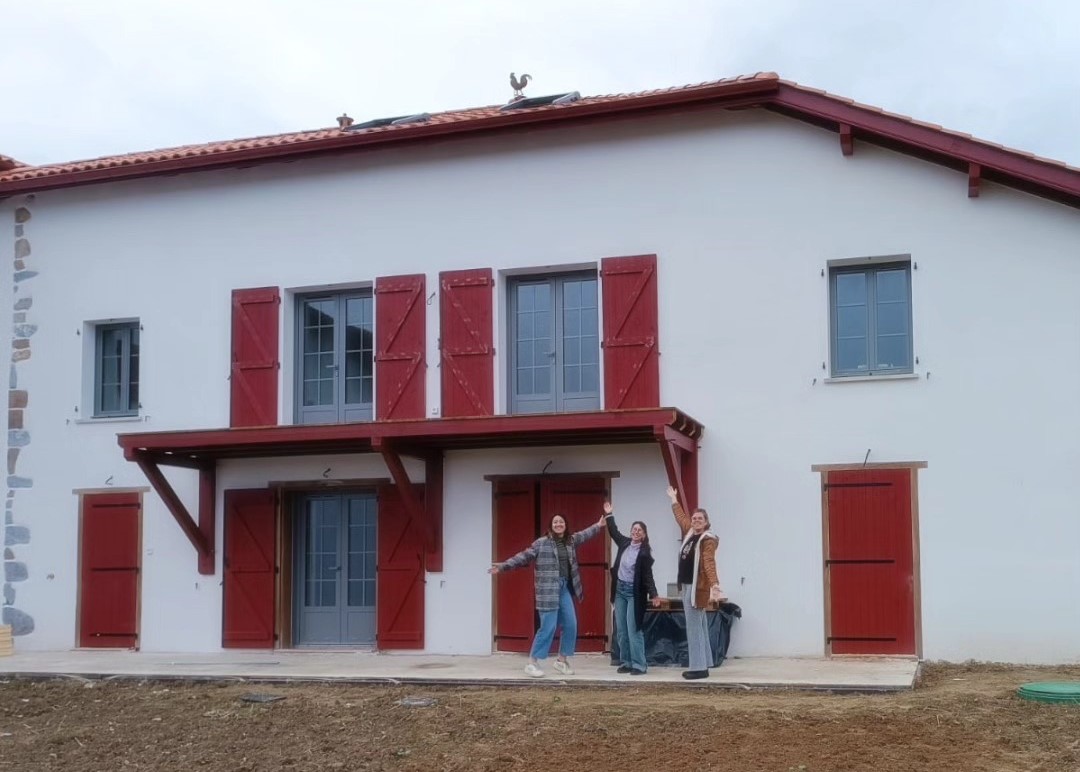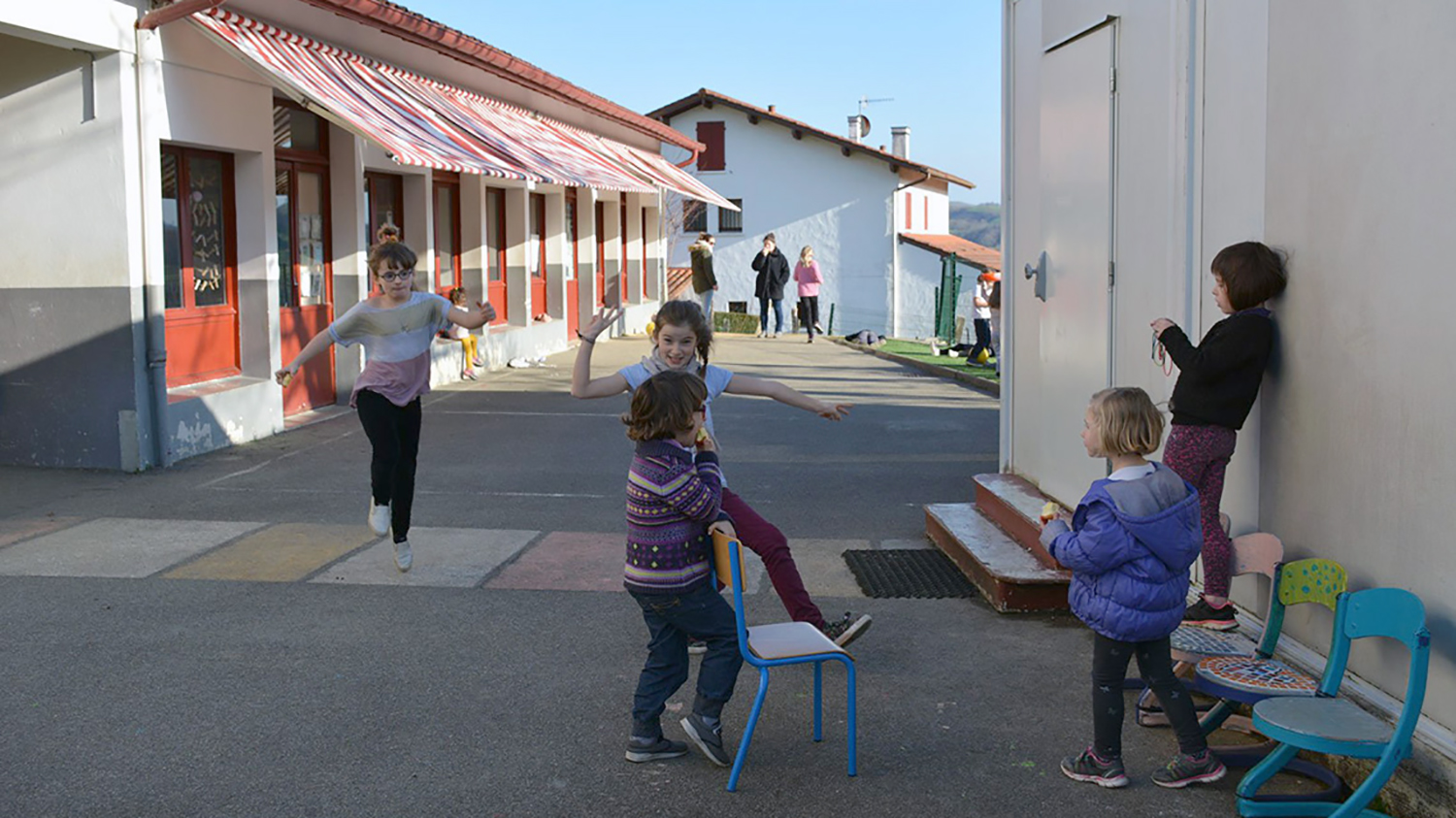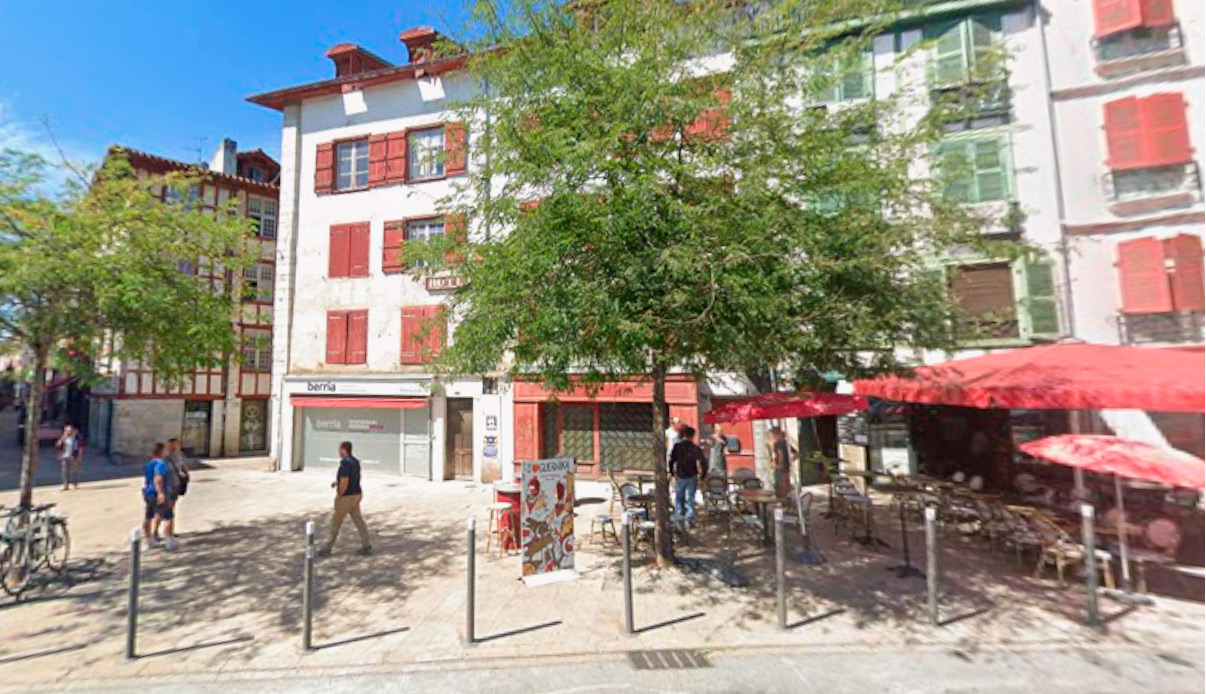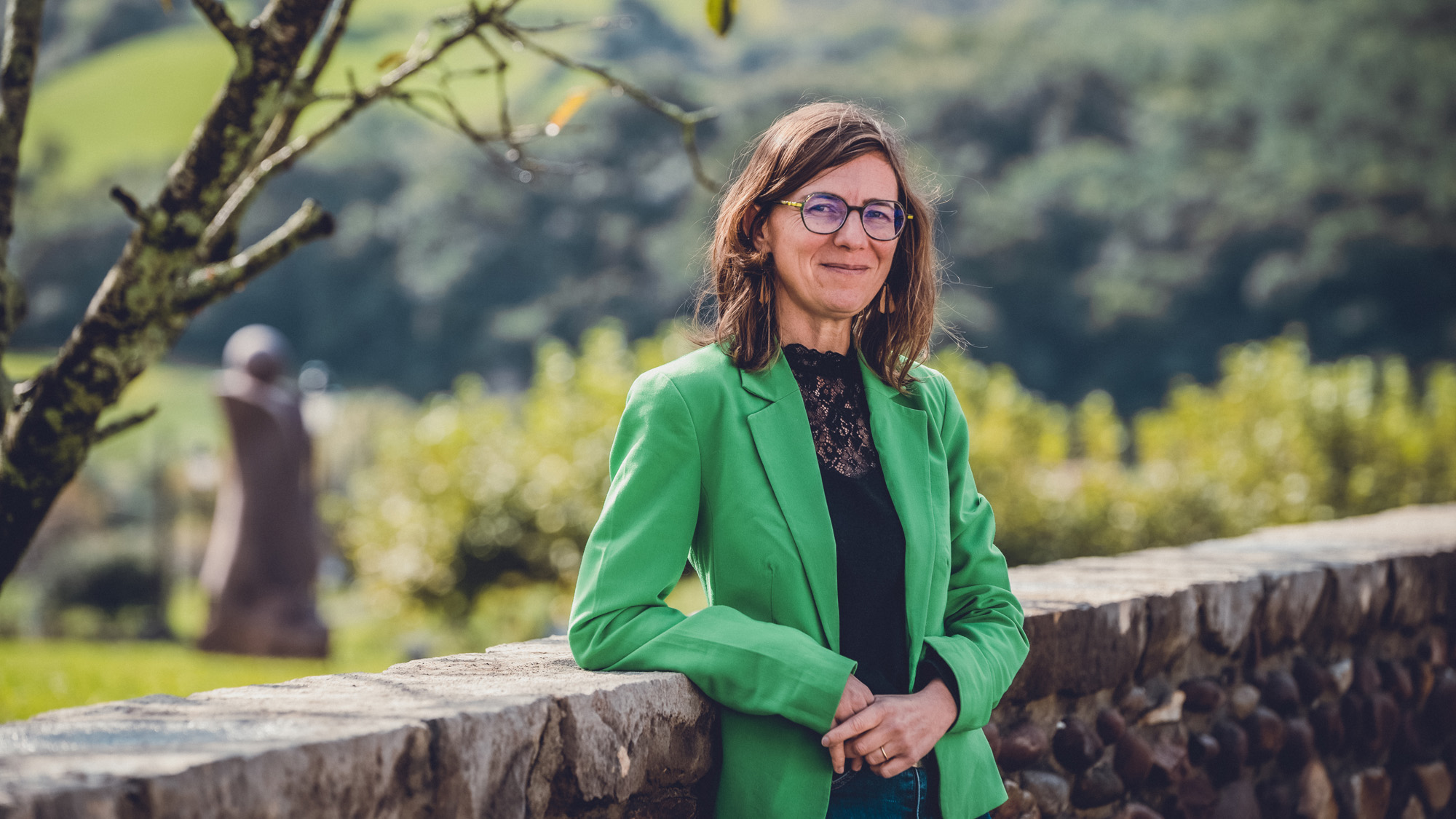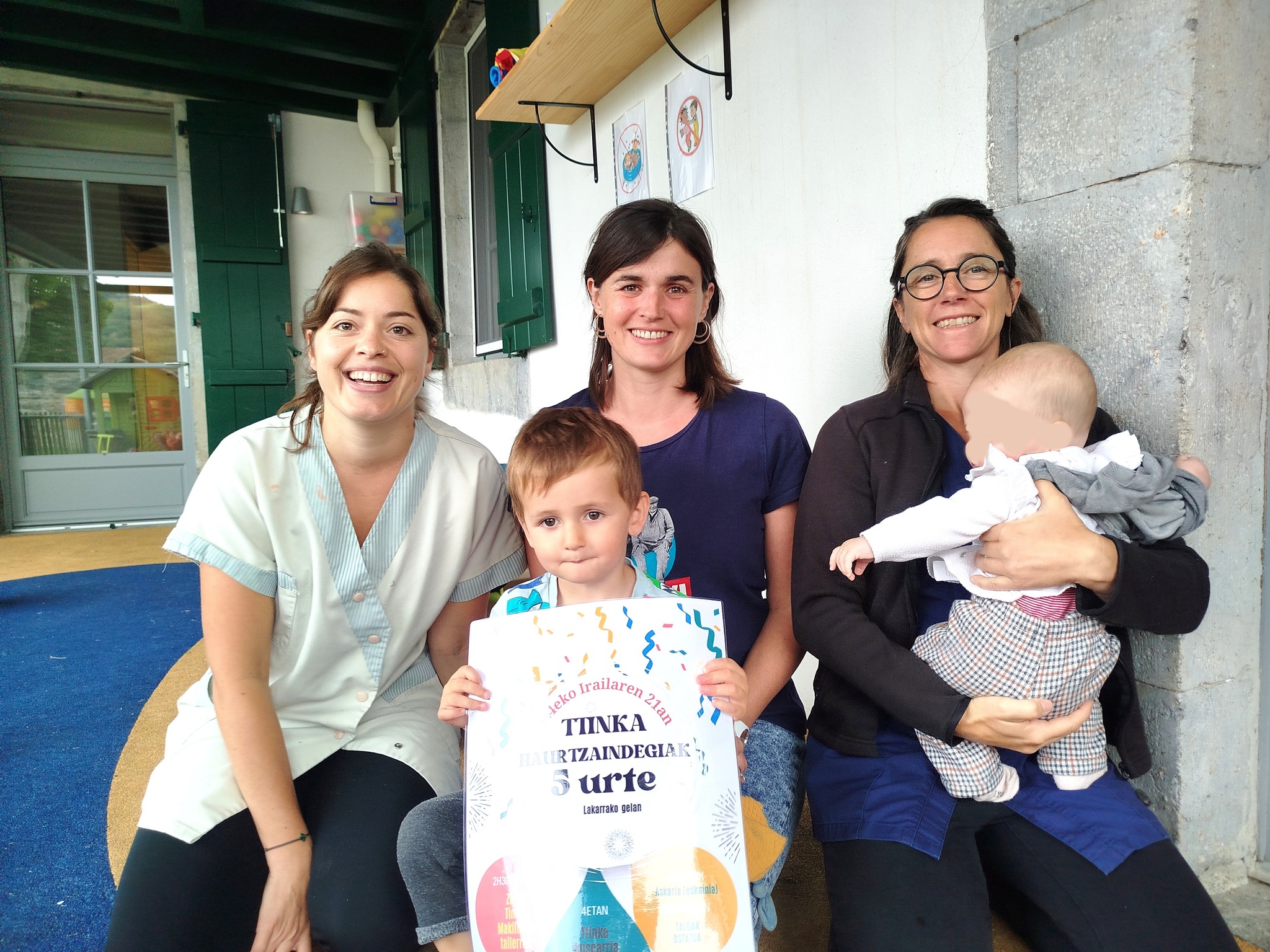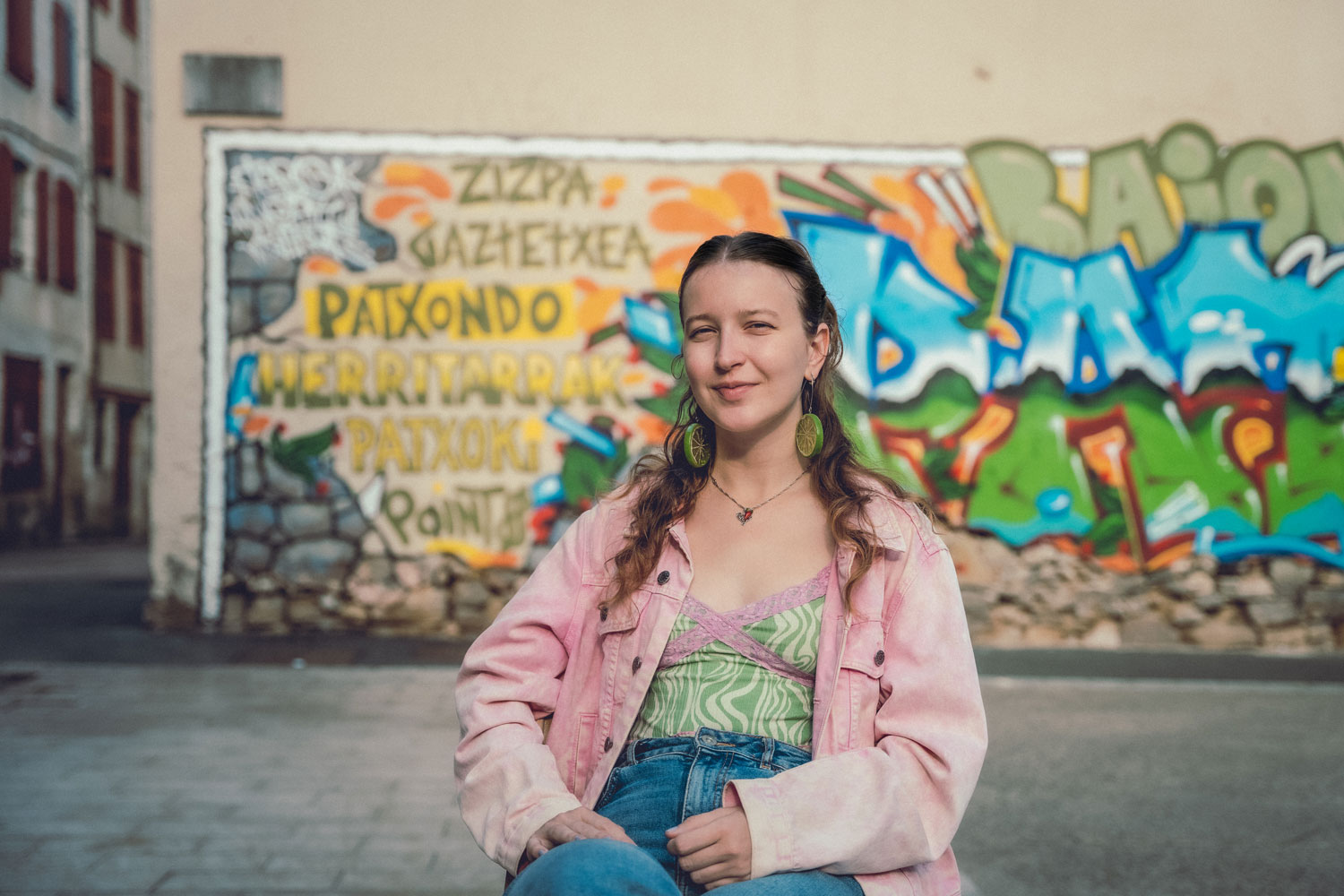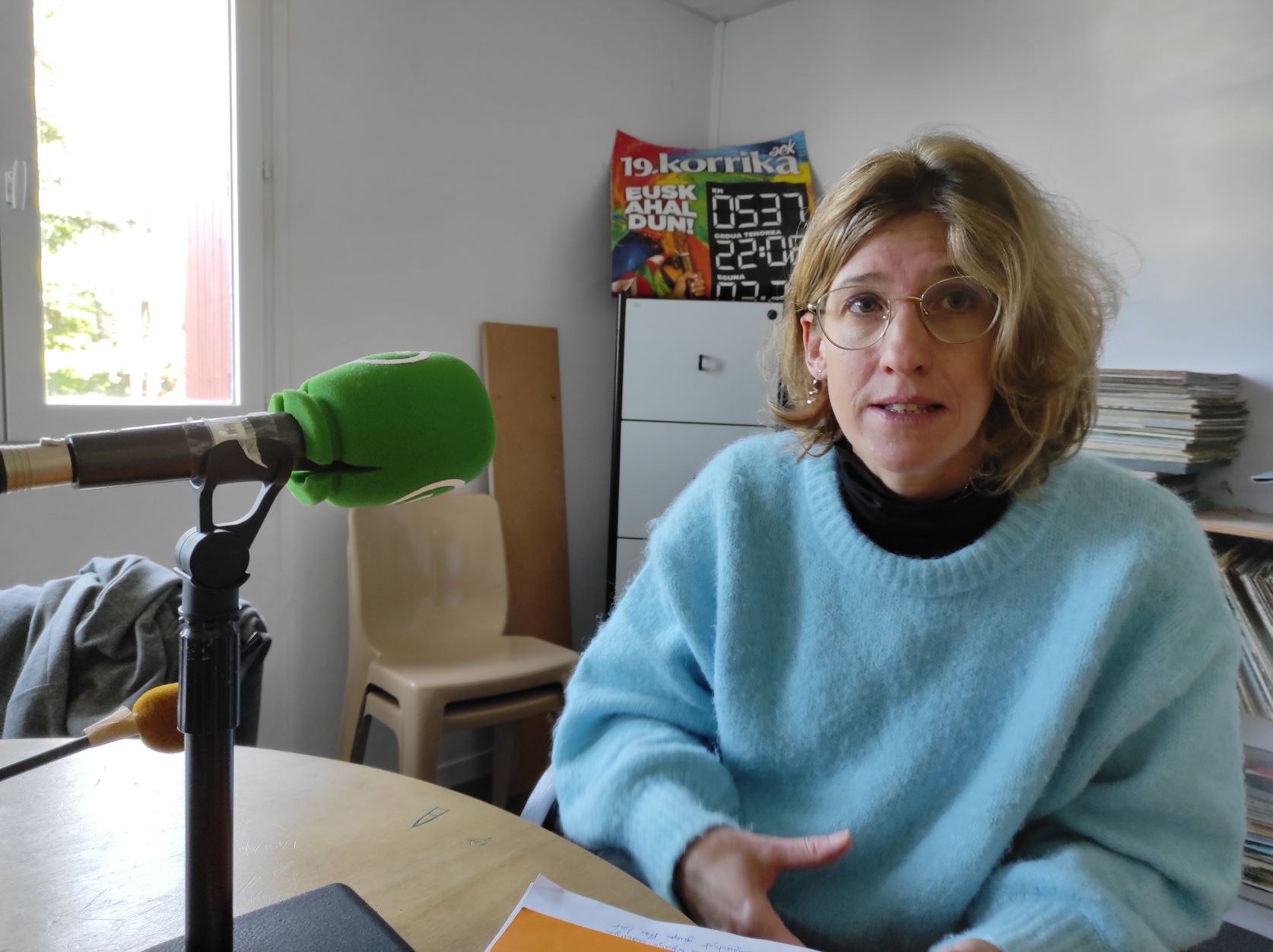73% of students from Ipar Euskal Herria are unrelated to the Basque Country
- Despite advances in teaching in Basque, most students study in the French monolingual model. The new inspector of the academy François-Xavier Pestel is optimistic

Three quarters of the students of Ipar Euskal Herria will not have contact with the Basque Country in the 2019-2020 academic year. This is indicated by data published by the Public Body of the Basque Language (EEP). The Basque Government has presented the evolution of teaching in Basque from the creation of the public entity in 2004 to the present, together with François-Xavier Pestel, the new academic inspector of the Atlantic Pyrenees. Despite the improvements in the figures, especially at the first levels, a large majority today studies the monolingual model.
In 2004, 108 schools throughout the continental Basque Country taught in Euskera, 147 of which were monolinguals. In the last fifteen years the panorama has turned: in the current course it has been proposed to teach in Basque in 158 schools; only 75 are monolinguals. Since the creation of the EEP, a total of 55 bilingual departments and 12 new ikastolas have been opened. The proportion of primary schools offering Basque education has increased from 42% to 68%. Likewise, the number of first-year students receiving Basque education has increased: from 24.5% to 40.9%.
On the second level, the situation is more complicated. Since 2004, 11 bilingual sections have been opened in schools, and SEASKA has also opened a new school in Baiona. Of the 40 schools in Iparralde, 28 offer a bilingual section; only eight are French monolinguals. However, 82% of students follow the monolingual section at school, compared to 92% at the lyceum. Despite the progress that has been made in recent years, there is still very little access to Basque education in the technological and professional spheres.
Although the data show that much remains to be done, the general photo of this course shows more than one positive element: three bilingual departments and a new ikastola. They will also continue to experiment with the ‘immersion’ model in maternal schools: This course will be conducted in 38 experiments — nineteen in public and many in private. Finally, four public schools have achieved parity in the bilingual section, with the same number of hours in Basque and French.
A process
In the opinion of the Pestel Academy inspector, ‘evolution’, ‘development’ must be highlighted. ‘Some have achieved equality, others have not; it does not mean that they will not achieve it. It's a process. The issue of resources in general, but especially that of human resources: teachers are needed who are able to teach one or another subject in Basque’, he said. He also pointed out that the only problem they have to address is not that of the Basque country: ‘We also have to take account of occitan and mountain areas’. It indicates that decisions are made according to these variables.
The Bilingual Department was created in 1982 in public schools, and it has taken 27 years to reach the equalization of four schools for the first time. Pestel has confirmed that development has been carried out "satisfactorily". He has insisted on more than one occasion that the State cannot do ‘everything’ and the State does ‘a lot’. In view of data from recent years, he highlighted that, at the same time as the number of students from Ipar Euskal Herria decreases, the numbers in Basque education are increasing: ‘It is also for the work of National Education’.
The director of EBEP, Bernadette Soule, explained that before the creation of the public entity (2004) there was no structured public language policy in favour of the Basque Country, which could explain the evolution “which some might see as laborious”. It stresses that teaching is one of the twelve challenges of the OPE: “We set as a priority the development of the offer, with the aim of making Basque education available on the three networks throughout the territory.” Soul explained that starting in 2008 they began to work in a quality structure and that they took two orientations to increase the number of teaching hours in Basque: to develop the experimentation of the mother's school that allows the classes to be made entirely in Basque, and to increase the number of subjects that are not languages taught in Basque in schools and colleges, in order to reach the parity of hours. In this sense, in recent years the training of teachers capable of teaching in Basque through different devices has been worked on.
As regards the events of last year, the Academy inspector has welcomed the evolution of experimentation in maternal schools in recent years, but has underlined the need for ‘evaluations’: ‘Basque, of course, but also French. No one should be punished with a view to French.' Faced with the question of whether pupils in French monolingual teaching are punished with Euskera, he has decided ‘to reply on French’: ‘I think it is legitimate for schools in the French Republic to prepare all children in French’.
The reform of the Lyceum, introduced by the French Ministry of Education, has created many problems, as it does not provide for the creation of a bilingual section. The new vision of the Academy has not been able to explain this forgetfulness: ‘The implementation of a plant reform entails the introduction of the general table and the subsequent approximation to situations which should always be the subject of analysis’. In his words, the lack of provision for a bilingual section in the reform table does not demonstrate a "lack of interest" on the part of the state. The OPE has already forwarded its proposal to the Ministry of Education, which is currently under study, as reported yesterday to Efe sources of research.
First meeting with SEASKA
In recent years there have been great conflicts because the National Education did not want to give the positions requested by SEASKA. The day before yesterday, the first meeting was held, at which the Academy inspector said it was ‘friendly’. ‘Yesterday we saw that there are things to improve’. In this regard, he stressed that "then come the political decisions that are linked to the budgets".
SEASKA director Hur Gorostiaga has also described the first meeting of the plenary session as "right". “We anticipate great growth for next year. We are asking for posts on that basis. Each has to work the visions of the other.” A new meeting will be held at the beginning of the year.
Nafarroa Beherean, Aiherrako 'Beltzegitea' etxean kokatuko da Eguzkilore haurtzain-etxe berria. Euskara, natura eta motrizitate librea oinarri harturik, heldu den apirilean hasiko dira zerbitzua eskaintzen.
The problem of the afrancession of the names of the places of Euskal Herria is not only due to the lack of consideration of the language in the signaling panels, but also to the execution of a decision on the domiciliation that was taken a few years ago.
Ultimately, the... [+]
Larunbatean ospatu dituzte Ttinka mikro haurtzaindegiaren bost urteak Lakarran. Baxe Nafarroko euskara hutsezko egitura bakarra da, Euskararen Erakunde Publikoaren B ziurtagiriduna.
On May 17, five Euskaltzales of Ipar and Hego Euskal Herria performed an action coinciding with the call made by the students of the Bernat Etxepare lyceum to mobilize in favor of the Basque. On the wall of the Baiona Subprefecture, a message was sent to the authorities of the... [+]
“Geldi euskara zapaltzea” lema berriz hartu du Euskal Herrian Euskaraz taldeak larunbatean egin duen prentsaurrekoan. Maiatzaren 17an, esaldi hori Baionako suprefeturan tindatzeaz akusaturik, irailaren 10ean epaituko dute Gorka Roca Torre.
Ikasturte honetan, lehen mailako ehun eskola elebidunetan 5.700 ikaslek ikasiko dute. Bigarren mailan hamasei kolegio eta lau lizeotan 1.600 dira. Zailtasun nagusia aurten ere kolegioan euskararen eta frantsesaren arteko oren parekotasuna erdiestea da.
Start of the summer. EHZ festival hangover (atx, headache). You want to breathe after a charged course. Flush the head. Reconnect key elements. Take some time with family, see old friends again and rest (a little) in the daily struggle. Really? !...
As a family, walk to the... [+]
Ms. Judge of the Bayona Court of Justice dismisses:
In March, I was judged by some Euskaltzales in Baiona for taking part in some of the actions we have taken to denounce the unfair treatment suffered by the Basque authorities in the French state. At the beginning of the trial,... [+]
Maddi Kintanak Baiona, Angelu eta Miarritzeko gazteen euskara aztertu du bere tesian. Hitz berriak sortzen dituzte baina baita hitzak beste hizkuntzetatik hartzen ere, besteak beste, interneten eraginez.









